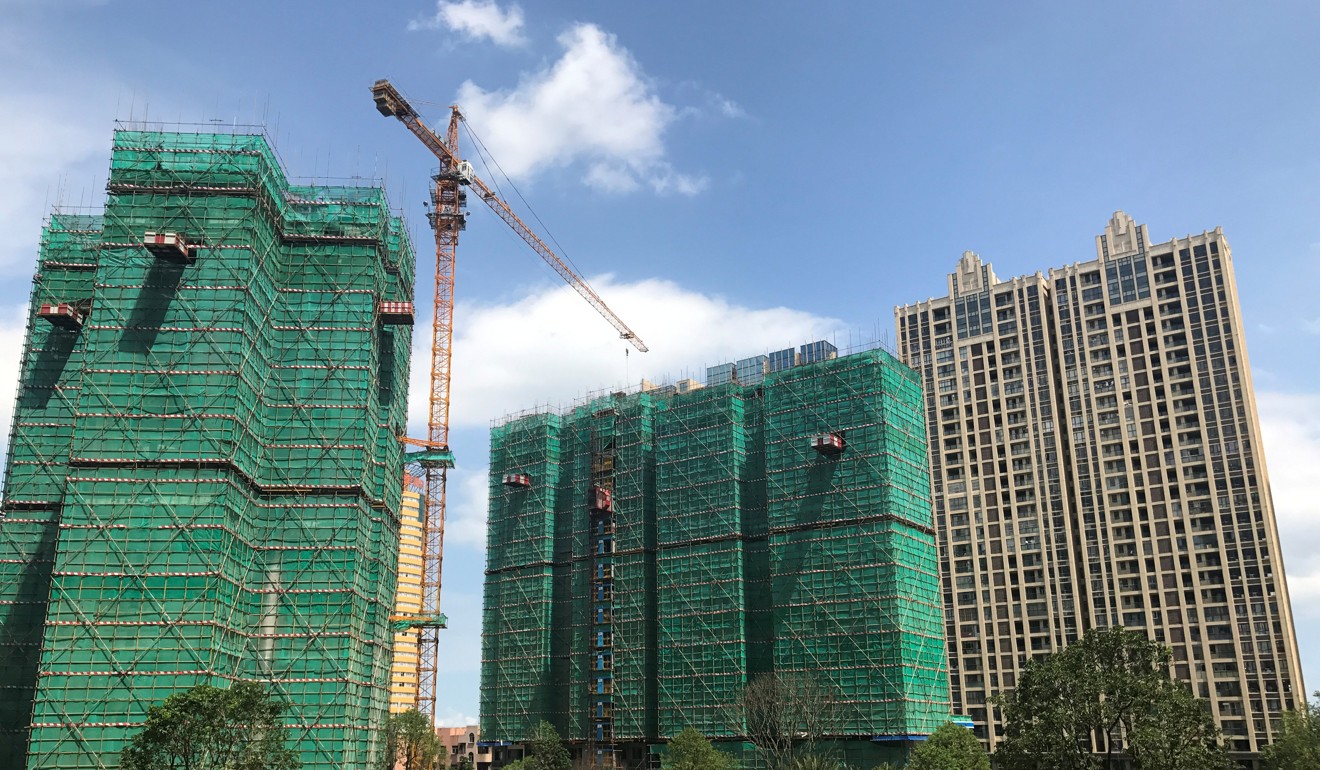
Slower property, construction sectors drag on China’s growth
Service industries, however, one of the bright spots as government gives detailed breakdown of nation’s third-quarter GDP figures
China posted relatively solid economic growth in the third quarter, driven by a stronger services industry, although there were signs of weakness in real estate and construction as property cooling measures start to bite, data showed on Friday.
China’s property sector grew 3.9 per cent in the quarter from a year earlier, decelerating from 6.2 per cent in the second quarter and the slowest pace in nearly two years, the National Bureau of Statistics said in a more detailed breakdown of third-quarter GDP data issued on Thursday.
Growth in construction activity slowed from 5.4 per cent in the second quarter to four per cent, the weakest expansion since the fourth quarter of 2000, the data showed.
Property and construction together account for 13.3 per cent of the economy, with property alone directly impacting 40 other industries.
Softening in those sectors appeared to be the main drag on otherwise fairly resilient China data on Thursday. Third-quarter growth eased only slightly to 6.8 per cent from 6.9 per cent in the previous quarter, as had been widely expected.
Analysts have long predicted a slowdown in the property sector and construction after city governments began rolling out a flurry of measures from late last year to cool soaring home prices and deter speculators.
Property sales dropped for the first time in more than 2½ years in September and housing starts slowed sharply.
China had posted forecast-beating growth in the first half of the year, led by a sharp turnaround in the long ailing industrial sector, which accounts for a third of the economy.
A construction boom – fuelled by the housing frenzy and government infrastructure spending – has spurred demand and prices of building materials, with the resulting return of factory gate inflation boosting earnings for China’s heavily indebted heavy industry.

China’s steel output dropped in September from a record high the previous month as mills in the world’s top producer cut production in line with Beijing’s campaign for clearer skies, pointing to further declines as winter curbs kick in.
The services industry took up much of the slack, expanding eight per cent in the third quarter, from 7.6 per cent in the second, driven by a pickup in the financial sector and strong expansion in information technology and other areas.
Although “old economy” stalwarts like property and industry have led the way this year, Beijing continues to push for a more balanced economic growth model driven more by consumption and services.
Consumption industries including retail and catering and accommodation posted mostly stable growth of 7.1 per cent in the third quarter.

